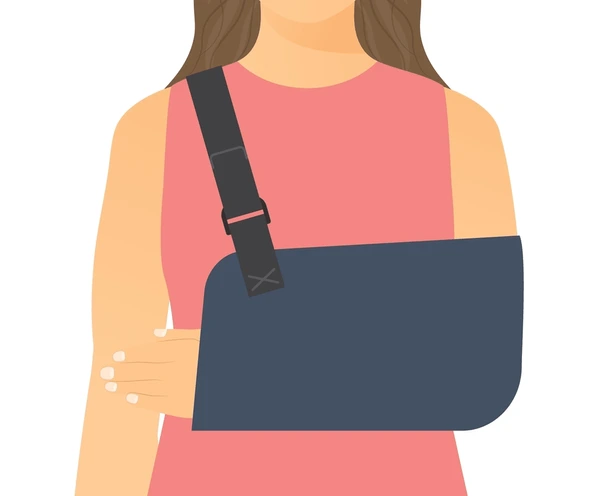Getting back to the gym to kickstart your fitness program in the New Year after a shoulder injury or surgery can be tricky. You must walk the fine line between pushing too hard resulting in a re-injury and not doing enough resulting in no improvement of shoulder strength or mobility. Here’s how to protect your shoulder when you get back in the gym after a long layoff.The first thing to do would be to clear your exercise program with your surgeon or physical therapist. It’s important to remember that no two people recover the same way after a surgery or injury. Your surgeon or physical therapist will be able to personalize your program so you can train safely.In general, the first 4-6 weeks after a surgery, your shoulder may be in a sling and you need to concentrate on maximizing mobility with passive range of motion exercises to prevent shoulder stiffness. After 6 weeks your shoulder sling can be discontinued, and the focus is range of motion.After 3 months you can begin using resistance bands to train the operated side and then progress to light weights. It is important to note that it takes a rotator cuff repair 3 months to heal into bone, and then the tendon remodels for up to 6 months. Therefore, heavy weights and/or rapid movements should be avoided for approximately 6 months depending on the specific tear and how well you’re progressing. Always remember to warm up with 1-2 sets of lightweight sets before moving to your working set (heavier weights). Avoiding jerking or just going through the motions when you exercise. Overhead activities such as military press and lat pull-downs are more stressful on the shoulders and should be done with light weights and avoided if painful. All your movements should be slow and purposeful, feeling the contraction and extension of the muscle with every rep.Some amount of soreness is to be expected with working out, but if you have any sharp pain or increasing soreness, that could be an indication that you shoulder lower the weight or avoid the specific exercise.Following these guidelines will help protect your shoulder on your journey to better health and fitness in The New Year.Dr. Patrick Denard has been voted one of the top 20 Shoulder Surgeons in North America and is the most widely published shoulder specialist in Oregon. Dr. Denard is committed to providing the highest level of Orthopedic care to his patients. Dr. Denard has advanced arthroscopy training and is able to perform the vast majority of shoulder procedures in a minimally invasive fashion, including all types of rotator cuff repairs and instability repair. These techniques allow him to repair tears that some consider “irreparable.” Providing every patient with advanced medicine and compassionate care each and every time.
Similar posts



